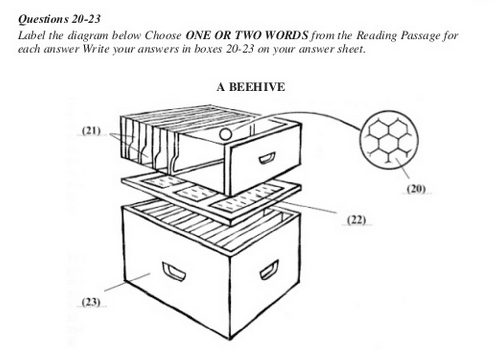This post will help you answer short answer questions more effectively by looking at a sample question, identifying common problems and giving you a strategy to use on exam day.
Short Answer Questions
These questions are often called ‘comprehension’ questions and they are very common in English classrooms all over the world. Most students have answered these kinds of questions before and for this reason, most students tend to do quite well with them.
Despite this, there are some common problems that cause students to make mistakes and throw away marks.
Short Answer Example

Source: Cambridge English IELTS Past Papers.
Common Problems
- Synonyms and paraphrasing are the biggest problems. Students who are unaware of these tend to look for keywords in the text that directly match those in the questions. This wastes lots of time and good time management is essential in the reading test.
- Word limit can also cause people to throw away easy marks. If you write over the stated word limit you will get the answer wrong.
- You don’t have to read every word of the text. These questions test your ability to skim and scan for specific information. You also won’t have time to read every word.
- Students often see a word they don’t understand in the question or text and either panic or spend too much time thinking about the meaning.
- Some students try to write full sentences. Your answers don’t have to be grammatically correct so stay under the word limit.
Skills Tested
- Ability to skim the passage quickly and understand the overall meaning.
- Ability to scan for specific information.
- Understand the question being asked.
- Identify keywords.
- Think of possible synonyms and paraphrases of keywords.
Tips
- The answers appear in the same order as the text.
- Look at and understand the questions first before you start reading the text. What is the question actually asking?
- You will probably be given a word limit, for example ‘NO MORE THAN THREE WORDS AND/OR A NUMBER.’ Make sure you don’t go over this limit.
- As stated above, the answers do not need to be grammatically correct, just short answers.
- Don’t give your opinion, just the answer in the text.
- Keywords in the question will normally be nouns or noun phrases.
- When you find your keywords always think synonyms and paraphrases.
Strategy
- Read the instructions carefully and note the word limit.
- Read and understand the questions. Think about the information you will need to find.
- Underline any keywords in the questions.
- Think about synonyms or paraphrases for these keywords.
- Find part of the text question 1 relates to.
- Read question again.
- Read the section containing the answer carefully and identify answer.
- Continue with next question and repeat until finished.
What are the different question types?
It is important that you familiarise yourself with each different type of question. Please click on the links below for common problems, tips and a strategy for each type. They are as follows:
- Sentence completion
- Summary, note, table, flow-chart completion
- Diagram label completion
- Multiple choice
- Matching information
- Matching headings
- Matching sentence endings
- True, false, not given
I hope you found this article useful and if you have any questions or comments please let us know below.

